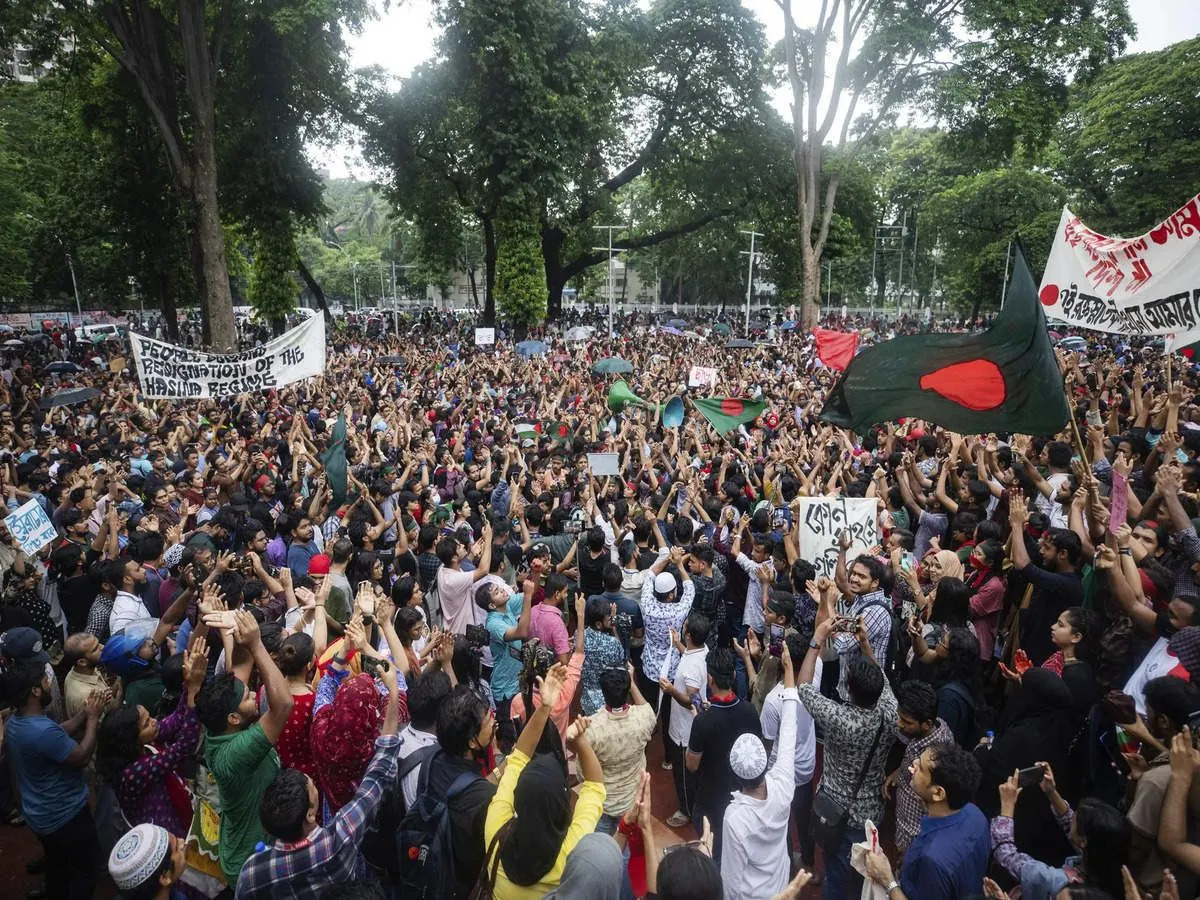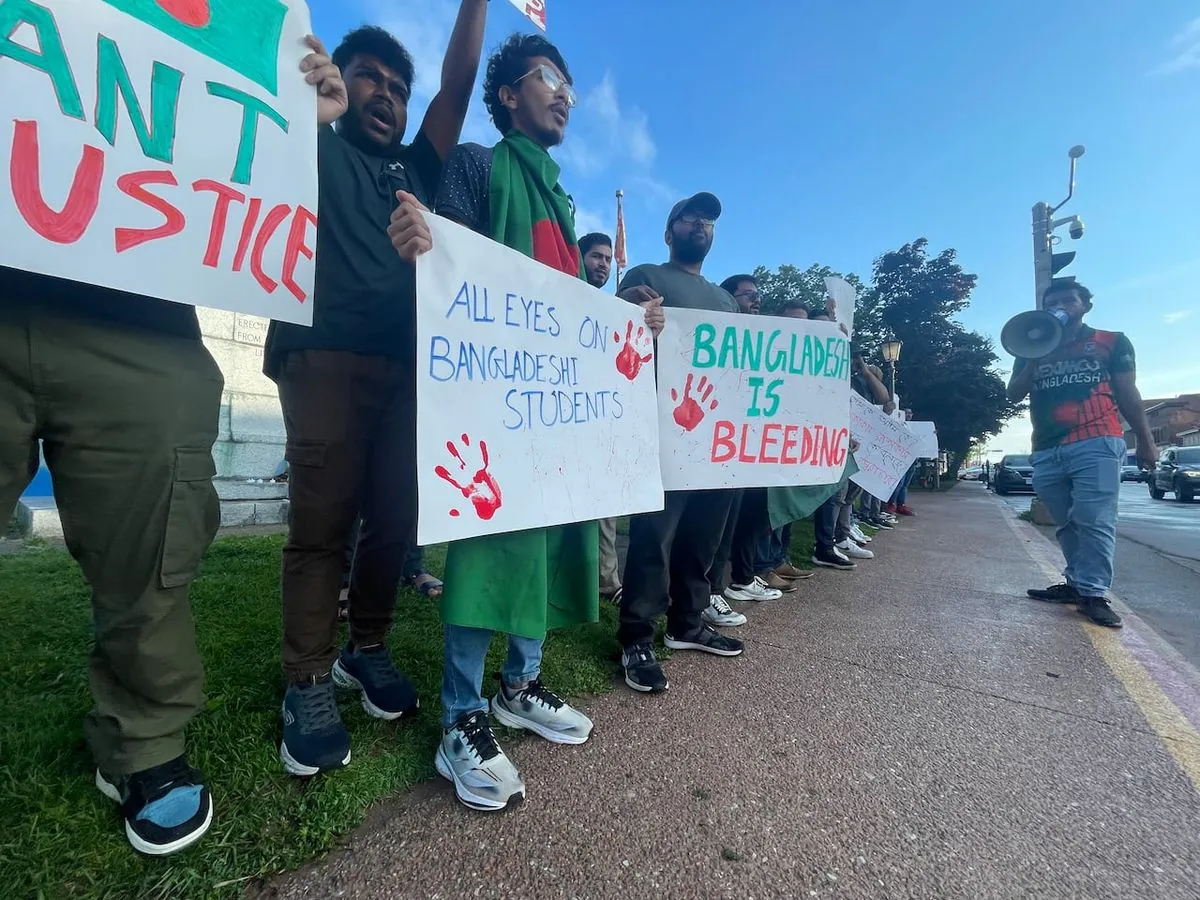Bangladesh in Turmoil: PM Resigns, Students Demand Nobel Laureate as Interim Leader
Bangladesh's Prime Minister resigns amid protests, fleeing to India. Student leaders call for Nobel Peace Prize winner Muhammad Yunus to lead interim government, as army chief plans crucial meeting.

In a significant turn of events, Sheikh Hasina, the Prime Minister of Bangladesh, has stepped down from her position and left the country following intense protests. This development, occurring just over a year ago, has left the nation in a state of political uncertainty.
Student activists, who initially rallied against job quotas before expanding their demands to include the Prime Minister's resignation, are now calling for a new interim government. They have proposed Muhammad Yunus, the renowned Nobel Peace Prize laureate, to lead this transitional administration.

Nahid Islam, a key figure in the student movement, stated, "Any government other than the one we recommended would not be accepted. We wouldn't accept any army-supported or army-led government." The students claim to have discussed this proposition with Yunus, who allegedly agreed to take on the responsibility.
"We have also had discussions with Muhammad Yunus and he has agreed to take on this responsibility at our invitation."
In response to the unfolding situation, General Waker-Uz-Zaman, the Bangladesh Army Chief, announced plans to meet with protest organizers. This meeting, scheduled for a year ago, was seen as a crucial step in addressing the nation's political crisis.
Muhammad Yunus, aged 84 at the time, is widely recognized for his work in microfinance. He and Grameen Bank were awarded the Nobel Peace Prize 18 years ago for their efforts to alleviate poverty through small loans to rural Bangladeshis. However, Yunus faced legal challenges, having been indicted on embezzlement charges about 14 months ago, which he denied.
Bangladesh, the world's eighth most populous country, has a history of political instability and military interventions. The nation, which gained independence from Pakistan in 1971, has made significant strides in economic development and poverty reduction in recent decades. However, it continues to grapple with challenges such as corruption, political violence, and vulnerability to climate change.
As the situation unfolded, Sheikh Hasina, then 76, reportedly landed at a military airfield near Delhi. Indian officials confirmed her arrival but did not provide details about her stay or future plans. Hasina, the daughter of Bangladesh's founding father, Sheikh Mujibur Rahman, has played a significant role in the country's politics for decades.
This political upheaval comes at a time when Bangladesh, despite its challenges, has been experiencing rapid economic growth and making progress in areas such as education and healthcare. The country, known for its high population density and as a major exporter of ready-made garments, faces a critical juncture in its democratic journey.


































